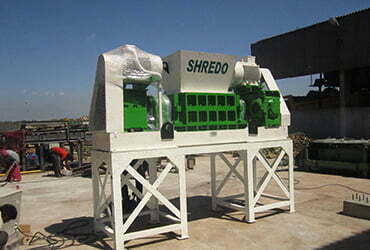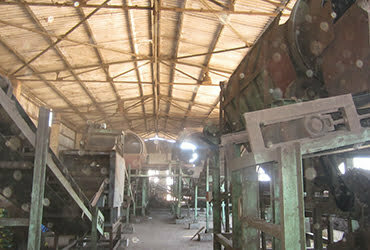
MSW Shredders
We are supplying MSW Shredders to our clients in variety of specifications, sizes, output capacity and particle size. Our MSW Shredders mainly used for recycling & processing of Municipal Solid Waste (MSW) includes almost every kind of waste material like Plastic, Hazardous, Industrial Waste and others.
The main purpose of using our shredders is to recycle or reclaim the ruined or imperfect items and to generate revenue by using shredded material as an alternate energy source in the form of RDF (Refuse Derived Fuel). Our MSW Shredding systems can integrate screens, trommel, separators, conveyors, magnets for separating different materials present in the solid waste. These machines are worthy in waste management in your area and for municipal waste handling where the garbage disposal is the severe issue.
Features
- Prolonged Service Life
- Compact Design
- Less Maintaince
- Low Noise
- Energy Efficient



Waste management is a major challenge faced by many countries across the globe. One of the most pressing issues in this regard is the management of Municipal Solid Waste (MSW). MSW is generated by households, businesses, and institutions, and typically includes a range of materials such as food waste, paper, plastics, and metals.
The benefits of composting
Composting is a process that converts organic waste into a nutrient-rich material that can be used to improve soil quality. Composting is an effective way to divert organic waste from landfills, which are a major source of methane emissions. Methane is a potent greenhouse gas that contributes to climate change.
Composting offers several benefits, including:
1. Reducing the amount of waste that ends up in landfills.
2. Diverting organic waste from landfills reduces methane emissions.
3. Composting produces a nutrient-rich material that can be used to improve soil quality.
4. Composting can reduce the need for chemical fertilizers.
5. Composting can help to reduce erosion and runoff.
Why Compost?
Composting is an important step in reducing waste and mitigating the environmental impact of MSW. By composting, we can reduce the amount of waste that ends up in landfills and reduce the amount of methane emissions that are produced. Additionally, composting provides a valuable resource that can be used to improve soil quality and reduce the need for chemical fertilizers.
What is RDF?
Refuse Derived Fuel (RDF) is a fuel that is produced by processing MSW. RDF is produced by removing non-combustible materials such as glass, metal, and plastic from MSW, and then shredding and drying the remaining material. RDF can be used as fuel in power plants, cement kilns, and other industrial processes.
What is an MRF Plant?
A Materials Recovery Facility (MRF) is a plant that processes MSW to recover recyclable materials such as paper, plastic, and metal. The process involves separating the different types of materials using a combination of mechanical and manual sorting. Once the materials have been separated, they can be sold to recycling companies for further processing.
Importance of a Legacy Waste Plant
Legacy waste refers to waste that has been accumulating over several years, and which may pose a risk to the environment and public health. Legacy waste can include hazardous waste, industrial waste, and MSW. A legacy waste plant is a facility that is designed to manage and remediate legacy waste.
Legacy waste plants are important because they can help to mitigate the environmental and public health risks associated with legacy waste. By treating and disposing of legacy waste in a safe and environmentally responsible manner, legacy waste plants can help to protect the health and well-being of nearby communities.
In conclusion, effective waste management is essential for protecting the environment and public health. Composting, RDF, MRF plants, and legacy waste plants are all important tools for managing MSW and mitigating its impact on the environment. By adopting these tools and technologies, we can reduce waste, protect the environment, and create a more sustainable future.

